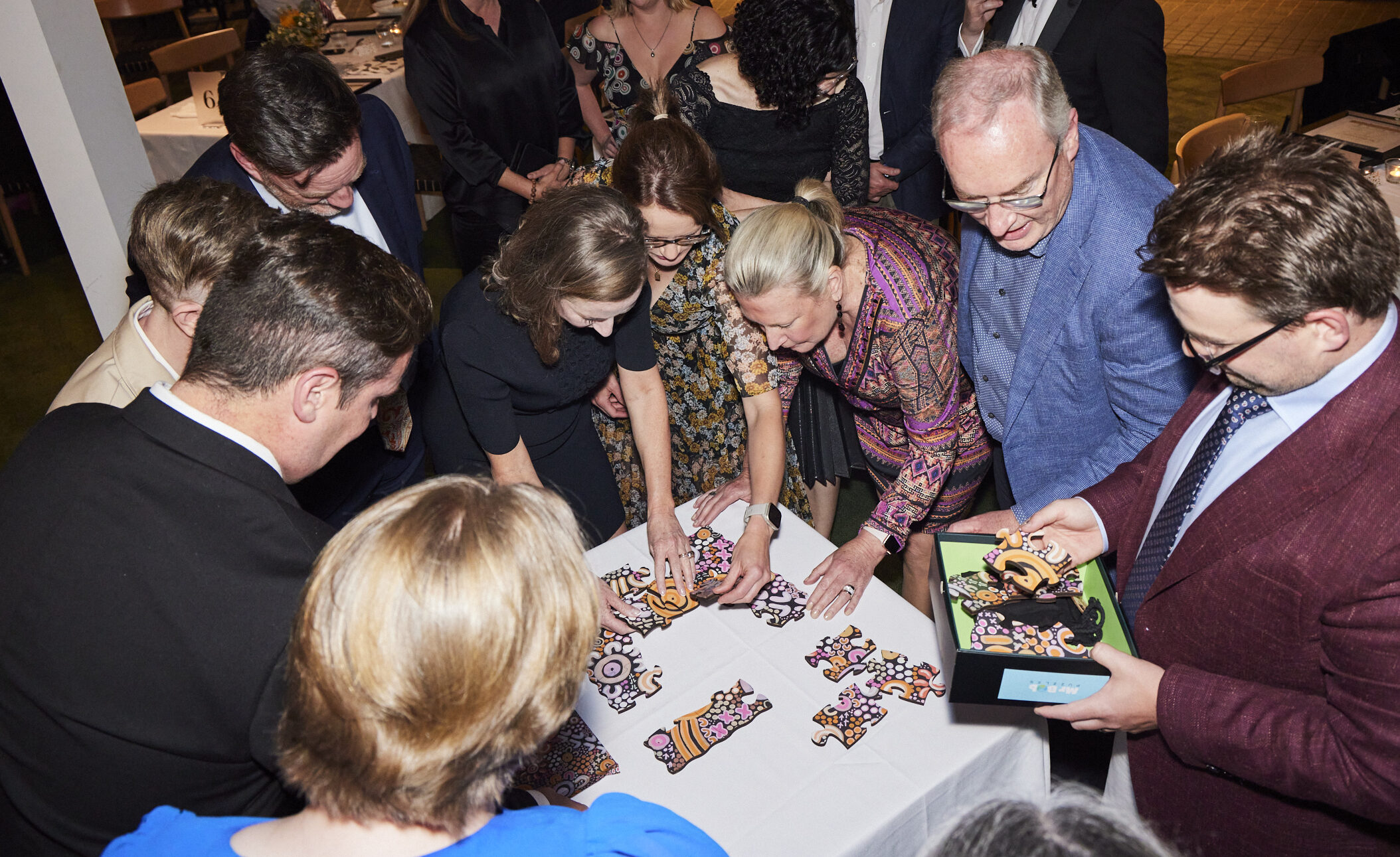In an increasingly diverse and polarised world, leaders are confronting challenges when providing space for and managing conflicting values. Cranlana’s CEO, Matt Finnis, offers valuable insights on how organizations can build the “moral muscles” needed to navigate these complex tensions. In a recent article with HR Daily, he explains why proactive preparation is crucial for workplace harmony and ethical leadership.
Trying to navigate tensions that arise due to pluralism and polarisation without first strengthening the “moral muscles” required is like trying to run a marathon without training, Matt warns.
“A lot of our workplaces or community groups have come a long way in being far more inclusive than they used to be, and are seeking to address some historical and systemic challenges whereby people of particular groups have been marginalised,”
“We need to fix those. But we also need to recognise that what it means to belong doesn’t always mean that you’re going to be comfortable,” he told HR Daily in a recent article.
Encouraging staff to be authentic and “bring their whole selves to work” has some necessary implications, Finnis explains. Every employee holds “a whole range of values” – some of them very deeply.

Matt Finnis, Cranlana Centre for Ethical Leadership CEO
“Part of the role of a leader in any workplace these days is to recognise that ‘difference and values’ conflicts and tensions are natural, and they’re not crises or issues to be solved. Rather, we’ve got to build a culture whereby we recognise that these are an inherent part of a healthy workplace.”
Sometimes one employee’s deeply held values or one group of employees’ values will conflict with another’s values, or with those of the organisation.
“The challenge for an HR leader,” Finnis says, is “encouraging a supportive environment where people feel like they are safe in their identity, in their values, their beliefs, but also respect the responsibility of the organisation to be able to have its own set of values.”
This takes work, and it’s best done proactively, not reactively, he says.
“If the first time that you turn your mind to the skills and techniques required to address these dilemmas is when you’ve got a live issue, you’re in a bit of trouble,” Finnis says, especially in a polarised culture where the mainstream media – and individuals on social media – are likely to weigh in, and where the way in which people disagree is often characterised by contempt.
What organisations require is very deliberate leadership over time that develops a culture of responsibility, care, and deep relationships from which disagreement characterised by respect can take place.
Finnis notes this isn’t easy; nor is deciding, as an organisation, whether to take a position on issues such as marriage equality or the Voice to Parliament referendum – particularly when not taking a position can be just as controversial as taking one.
Sometimes employees will expect their organisation to take a stand on an issue, and to represent certain values, but customers or shareholders might have a different perspective.
“The organisations that are handling it best are developing their own frameworks for deciding how their values will be brought to life,” Finnis says. They’re seeking to balance the expectations of staff with “a whole range of broader business considerations”.
“Do they have a customer base, for example, for whom this issue is particularly proximate? Or how does this show up in terms of the workplace and [past] challenges… versus where we want to go?
“A lot of the time it comes down to organisations saying: Well, we want to be on the right side of history, and want to do things for all the right reasons,” but whatever the stance and however good the reasons, a degree of disagreement is still likely.
Practise the process
Because “you can’t please everyone all the time”, how an employer holds discussions and makes decisions when an “inclusion dilemma” arises can be just as important as the outcomes, Finnis says. People with different views need to feel heard and respected, to understand the organisation has a process, and to feel part of it.
Finnis notes the chances of the media not getting wind of a significant values conflict is unlikely. “In this day and age, with social media, I don’t think that we can expect that our communities and our workplaces are going to keep these issues to themselves,” he says.
“The media focus will inevitably only pour more fuel on tensions, and seek to create further division,” but while it might be desirable to resolve an issue in a 24-hour news cycle, this isn’t realistic, particularly when the solution will often involve learning to live with a tension rather than resolve it.

In order to be confident the organisation can find a way through, leaders need to know how, which means they’ll need to be familiar with the process they’re going to follow, Finnis says.
By “lowering the stakes” and discussing issues when they’re not “live”, leaders and employees can practise the process of navigating an inclusion dilemma without the added pressure of an audience. Organisations can also learn from dilemmas that others are facing.
“None of us want to be in a situation where we’re trying to navigate a crisis, but there’s always a lot that we can learn from the experiences of others,” Finnis says.
“Bringing those experiences into our leadership team discussions, creating the space to think about how we would try and resolve those challenges, has got to make you more prepared for when they inevitably arise in your own organisation.”
Ready yourself with the knowledge and essential skills to lead in a divided workplace.
Leading the change: Lowering the temperature on values conflict at work is a two-week online masterclass designed to equip you with the knowledge and skills to recognise the causes and navigate the symptoms of values conflict in your workplace.
Share This Story
Related articles
The Cranlana Method
We don’t teach leadership skills. Instead, we help leaders apply the skills they already have more wisely – by building clarity of purpose and ethical courage. Drawing on a rich history of philosophical wisdom, they encourage fresh and considered approaches to challenges – offering insights that, for many participants, will fundamentally transform their concept of leadership. Our courses are dialogue-based and immersive, bringing small groups of high-level leaders together for discussions that are wide-ranging and expertly guided. They are rigorous, in-depth and practical, providing high-level learning experiences and understanding to strengthen your capabilities as an effective and ethical leader.
Interested in discovering more?




